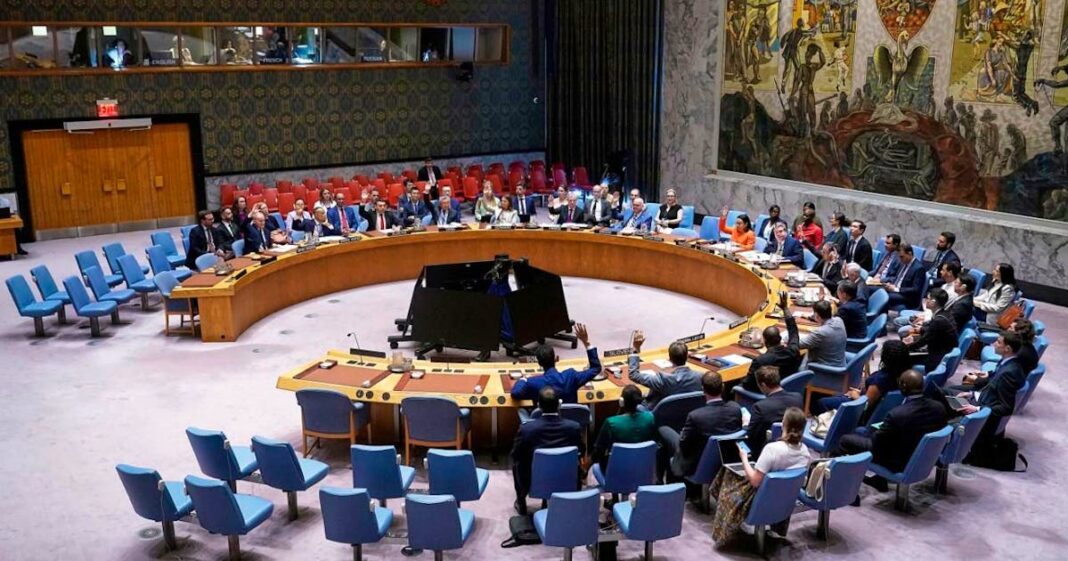## Introduction to the Security Council Veto
Recently, the United States exercised its veto power in the United Nations Security Council, blocking a resolution aimed at alleviating the worsening humanitarian conditions in the Gaza Strip. This decision sparked significant debate and reflection on the role of the U.S. in global governance and its alliance with Israel amid ongoing conflicts.
## Overview of the Failed Resolution
The draft resolution, proposed by ten non-permanent members of the Security Council, received overwhelming support with 14 votes in favor. It expressed grave concerns regarding the famine in Gaza and called for the Israeli government to “immediately and unconditionally lift all restrictions on the entry of humanitarian aid into Gaza.” Such language highlighted the urgency of the humanitarian crisis, further intensifying discussions on international accountability.
The proposal marked a significant moment in the Security Council’s history, as it coincided with the Council’s 10,000th meeting during its 80-year existence. The vote underscored the long-term complexities and challenges related to the Middle East conflict, especially concerning the humanitarian plight of civilians.
## U.S. Justification for the Veto
U.S. representative Morgan Ortagus articulated the reasons behind Washington’s veto. She claimed that the resolution, if passed, would effectively lend support to Hamas, which the U.S. designates as a terrorist organization. This stance reflects the U.S.’s longstanding positioning as Israel’s closest ally, reinforcing a policy framework resistant to international criticism, particularly amid escalating violence and growing calls for a ceasefire.
This justification illustrates the complicated interplay between domestic policy interests, geopolitical alliances, and international humanitarian obligations. Critics of the veto argue that such a stance ultimately sidelines the dire needs of civilians in Gaza and contributes to prolonged suffering.
## Contentions Within the Draft Resolution
In addition to humanitarian concerns, the proposed resolution included stipulations rejecting demographic or territorial changes in Gaza and advocated for an unconditional ceasefire, emphasizing the necessity for dialogue and negotiations. It also called for the immediate release of hostages held by Hamas and related groups, reflecting a comprehensive approach to addressing the myriad issues at stake in the conflict.
The rejection of this resolution allows for continued debate regarding how international entities, like the UN, can effectively hold states accountable while navigating complex diplomatic relations.
## Growing International Pressure
The atmosphere surrounding the UN debates suggests rising pressures on Israel, particularly as nations prepare for the upcoming General Assembly discussions. Notably, France and other countries plan to endorse Palestine’s recognition as a state at a forthcoming conference aimed at promoting a two-state solution. This highlights a shifting sentiment in global diplomacy, where a greater number of nations are calling for tangible initiatives to resolve the enduring Israeli-Palestinian conflict.
## Implications for Future UN Discussions
The recent veto by the U.S. raises important questions about the effectiveness of the Security Council as a mediator in conflicts that persistently challenge international peace and security. The response from the broader international community, including calls for action to establish Palestinian statehood, showcases a potential pivot in global perspectives, possibly reshaping future discussions and resolutions.
As the world watches closely, the implications of this veto extend far beyond immediate humanitarian needs, influencing geopolitical dynamics and discussions on conflict resolution strategies moving forward.
—
By weaving together the complexities of the veto, humanitarian issues, and international responses, we can better understand the multifaceted nature of the Israeli-Palestinian conflict and the critical role international bodies play in efforts toward resolution and peace.



